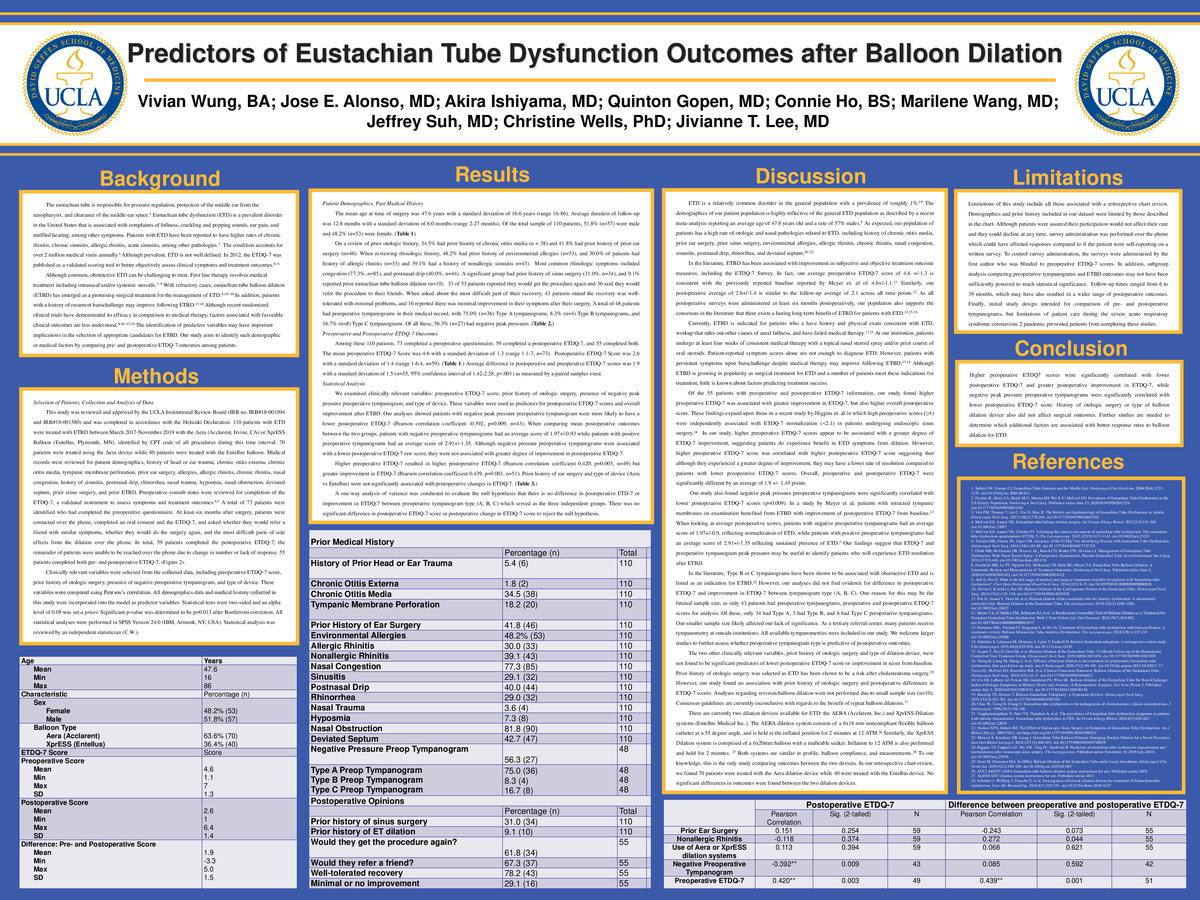-
Author
Vivian Wung -
Co-author
Vivian Wung, BA1; Jose E. Alonso, MD1,2; Akira Ishiyama, MD1,2; Quinton Gopen, MD1,2; Connie Ho, BS1; Marilene Wang, MD1,3; Jeffrey Suh, MD1,3; Christine Wells, PhD4; Jivianne T. Lee, MD1,3
-
Title
Predictors of Eustachian Tube Dysfunction Outcomes after Balloon Dilation
-
Abstract
Objective: To assess efficacy of eustachian tube balloon dilation and to identify predictors of clinical outcomes.
Study Design: Retrospective Chart Review
Setting: Tertiary Referral Center
Methods: Patients treated with eustachian tube balloon dilation were identified through retrospective chart review. We recorded patient demographics, prior otologic and rhinologic medical conditions, and preoperative completion of Eustachian Tube Dysfunction Patient Questionnaire. Patients were contacted at least 6 months postoperatively and completed a postoperative survey. We then investigated prior history of preoperative score, otologic surgery, presence of preoperative tympanogram with negative peak pressure, and type of device as potential predictors of postoperative score.
Results: 110 patients underwent balloon dilation for eustachian tube dysfunction refractory to medical therapy. Mean age was 47.5 years old (range, 16-86) with 48.2% women. 73 completed a preoperative questionnaire, 59 completed a postoperative Eustachian Tube Dysfunction Patient Questionnaire, and 55 completed both. Mean preoperative score was 4.6 +/- 1.3 while average postoperative score was 2.6 +/- 1.4. Mean difference in postoperative and preoperative score was 1.9+/-1.5. Higher preoperative scores were correlated with increased postoperative scores (p=0.003), and increased improvement in scores (p=0.001). Negative peak pressure preoperative tympanograms were correlated with lower postoperative scores (p=0.009) but not with improvement in score. Prior otologic surgery and dilator device did not correlate with postoperative score or changes in score.
Conclusions: Higher preoperative Eustachian Tube Dysfunction Patient Questionnaire scores were associated with greater improvement in postoperative scores and presence of negative peak pressure preoperative tympanogram was a predictor of lower postoperative scores.
-
College
AAC
-
Zoom
https://us04web.zoom.us/j/4574660982?pwd=cW9sYk1TNVE1UkdLMnE5dGJGbFVkdz09
-
PDF

